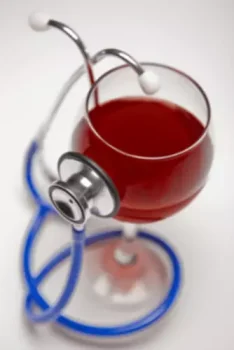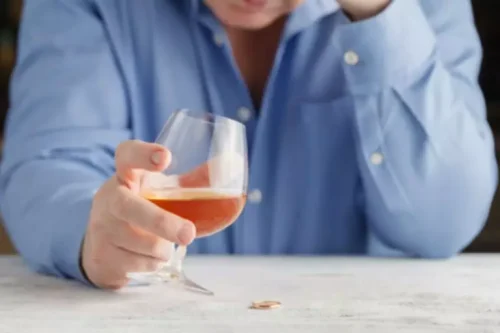Guilt And Shame In Recovery: Top 10 Tips to Overcome Them

Once you stop doing those things or taking actions that cause you to feel remorseful or sorry, the feelings can go away or not have a chance to show themselves. Shame and guilt are parts of addiction and recovery that are quite common but can be repaired with time and work. If one dwells in these feelings though, the creation of self-doubt can lead to furthering relapse or causing https://ecosoberhouse.com/ it to reoccur. It is important to try to become more self-aware of your feelings and work on them. Over the past 15 years in which I have been a counselor, I have worked with individuals who have battled a variety of different addictions over their lifetime. However, the common factor in each case kept leading back to the emotional train wreck that their lives had developed into.

Acceptance and Commitment Therapy (ACT) for Shame and Guilt

After that, you need residential addiction treatment with intensive therapy to help process your feelings in a safe setting, and thereby give you the tools needed to prevent relapse. Our addiction treatment center meets all of these needs, in an intimate, rustic setting. The self-punishment you endure when you dwell in feelings of guilt and shame can lead to a downward spiral of negative thinking.
How Do Feelings of Guilt and Shame Feed Addiction?
Yet, the most damaging correlation between shame, guilt and addiction is the part they can play once your habitual behaviour has presented itself. Those who live with an addiction will likely act in ways, which as sober, would be avoided, would be frowned upon. Irresponsible behaviour, illegal activity, selfishness and disinterest in relationships and career responsibilities are common behaviours linked to addiction. He interviews people within psychology, mental health, and well-being on his YouTube channel, The DRH Show.

Engage in Activities That Reinforce Positive Self-Identity
- But finding strategies for self-forgiveness and healing can help you move beyond those feelings.
- Incorporating Cognitive Behavioral Therapy (CBT) for Shame and Guilt into your treatment plan can help you develop strategies to cope with this difficult emotion.
- Self-Compassion and Self-Care Practices are essential tools that help individuals cope with shame and guilt during addiction recovery.
- Acceptance and Commitment Therapy (ACT) is a form of psychotherapy that has been found to be particularly effective in addressing feelings of shame and guilt during addiction recovery.
While it is a big step to take, emotionally, it is necessary to help you focus and appreciate impending rehabilitation steps. While this can be difficult to initially complete, healing from previous behaviours, controlled by addictive stimuli is a must. Without overcoming shame and guilt, there is a high probability that addiction diagnoses will remain, that your emotions will continue to fuel your behaviours.
What Causes Hypersexuality?
In this next part, we will delve into the Understanding and Addressing Shame and Guilt in Addiction Recovery. We’ll explore The Role of Shame and Guilt in Addiction Recovery and the importance of Distinguishing Between Shame and Guilt. With real examples and expert research, we’ll highlight strategies that you can adapt to your own journey towards recovery. Clinicians assess patients similarly to how they would for any other mental health condition. Some mental health professionals use the criteria for compulsive sexual behavior disorder in the ICD-11.
Shame can also influence mental health issues, such as depression and paranoia. It can reduce self-worth, it can influence distance and separation, and it can change personalities within an instance. Interacting with your Alcoholics Anonymous sponsor is an excellent way to start getting out and socializing. These interactions help to address issues of guilt and shame in a safe setting.
Treatment depends on the underlying cause but may include medication, therapy, and support groups. Hypersexuality may include unprotected sex or urges so strong they disrupt a person’s ability to function normally in day-to-day life. When any sexual behavior results in adverse consequences at home, work, or school or is used as an escape mechanism, it signals a problem. There is guilt and shame in recovery increasing evidence that serious problems can occur when shame is deeply woven into a person’s self-image and sense of self-worth. People who grow up in abusive environments can easily get the message that they are undeserving, inadequate, and inferior—in other words, that they should feel ashamed. Dwelling in guilt will often lead to shame, and that’s when you’re in danger.

Consultation with a medical healthcare provider may be recommended to rule out other conditions before a mental health assessment. It’s said that men with shame-based low self-esteem tend to “act out” through anger and violent behavior toward others, while women “act in” by turning their feelings inward and hating themselves. From the day you were born, you were learning to feel that you were okay or not okay, accepted or not accepted, in your world. Your self-esteem was shaped by your daily experiences of being praised or criticized, lovingly disciplined or punished, taken care of or neglected. If shame is preventing you from getting or staying sober, learn more about the holistic addiction treatment offered at Alpine Recovery Lodge. Though you might feel like you “deserve” to feel shame for your actions, punishing yourself does not help the people you may have hurt, nor does it help yourself for that matter.
